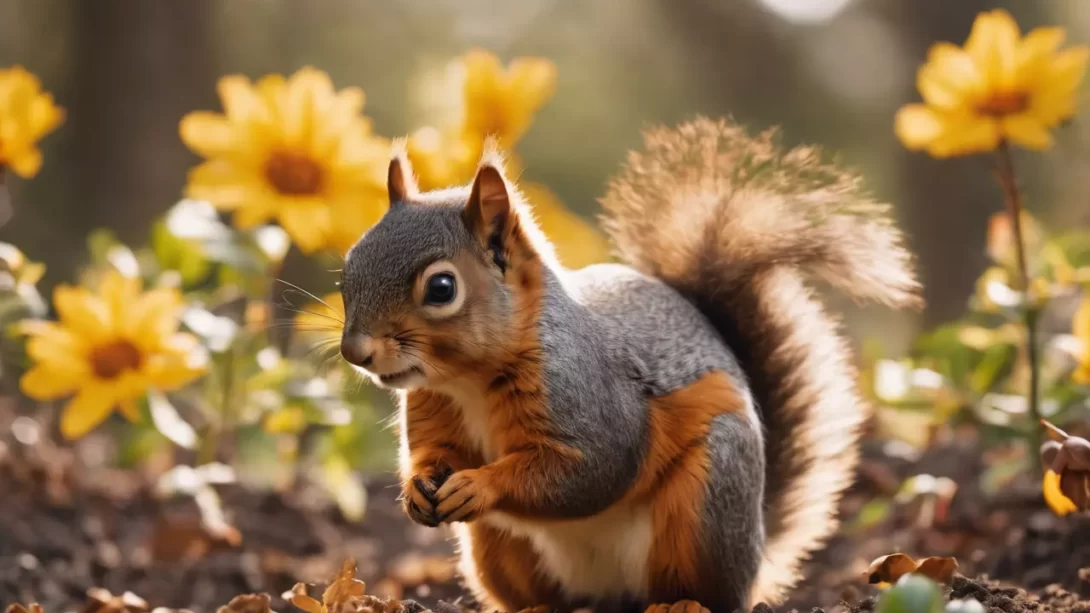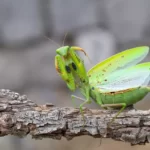Gardeners often face the challenge of protecting their bulb plants from the curious and persistent nature of squirrels. These agile creatures are known for digging up and feasting on a variety of bulbs, particularly in the fall when they are busy storing food for winter. Understanding how to effectively deter squirrels is essential for safeguarding your garden and ensuring the healthy growth of your bulbs.
Squirrel Behavior
Squirrels are attracted to gardens as a source of food and shelter. They have a keen sense of smell, which leads them to bulbs, seen as potential food sources. Their activity is especially noticeable in the fall when they are preparing for the winter by burying nuts and seeking out other food sources. Understanding this behavior is crucial in developing strategies to protect your bulbs from these persistent foragers.
Choosing Squirrel-Resistant Bulbs
One way to minimize squirrel damage is by selecting bulbs that are less appealing to them. Daffodils, alliums, and hyacinths are known to be less attractive to squirrels due to their taste and scent. Planting these varieties can reduce the likelihood of squirrels targeting your garden. It’s also beneficial to mix these less appealing bulbs with more susceptible varieties to provide a natural deterrent.
Physical Barriers and Deterrents
Creating physical barriers is a highly effective method to protect bulbs from squirrels. One common technique is to cover the planting area with wire mesh or chicken wire after planting the bulbs. The mesh should be securely anchored to the ground and have openings small enough to prevent squirrels from reaching through. Another option is using bulb cages, which can be placed around individual bulbs or groups of bulbs to provide protection. These barriers allow the plants to grow through but keep squirrels out.
Natural Repellents
In addition to physical barriers, natural repellents can be used to deter squirrels. Homemade pepper sprays, made by mixing water with cayenne pepper or chili powder, can be sprayed around the planting area to create an uninviting environment for squirrels. Repellents based on scents that squirrels dislike, such as garlic or peppermint oil, can also be effective. It’s important to reapply these repellents regularly, especially after rain, to maintain their effectiveness.
Squirrel-Proofing the Garden
Making your garden less inviting to squirrels can go a long way in protecting your bulbs. This involves removing potential attractants like easily accessible bird feeders or fallen fruits and nuts. Habitat modification, such as trimming tree branches that provide easy access to the garden, can also discourage squirrels. Additionally, maintaining a tidy garden by clearing debris and dense ground cover can reduce hiding and nesting spots for squirrels.
Alternative Planting Methods
Adjusting your planting techniques can also help in deterring squirrels. Planting bulbs deeper than the recommended depth can make it more difficult for squirrels to reach them. For example, if bulbs are typically planted at a depth of 3 inches, planting them 5 or 6 inches deep can provide extra protection. Additionally, consider using containers for your bulbs. Planting in pots or raised beds can offer a level of protection, as these can be more easily covered or moved to less accessible locations.
Consistent Monitoring and Adjustment
Regular monitoring of your garden is key. Keep an eye out for signs of squirrel activity and adjust your strategies as needed. This might involve reinforcing physical barriers, reapplying repellents, or even changing the types of bulbs you plant. A flexible approach, adapting to the behavior of the squirrels in your garden, can yield the best results in protecting your bulbs.
Conclusion
Keeping squirrels from digging up bulbs requires a combination of tactics, from choosing less attractive bulb varieties and employing physical barriers to using natural repellents and modifying planting methods. By understanding squirrel behavior and being proactive in your gardening strategies, you can effectively protect your bulbs and enjoy a thriving garden. Remember, consistency and adaptability in your approach are key to maintaining a squirrel-proof garden.



